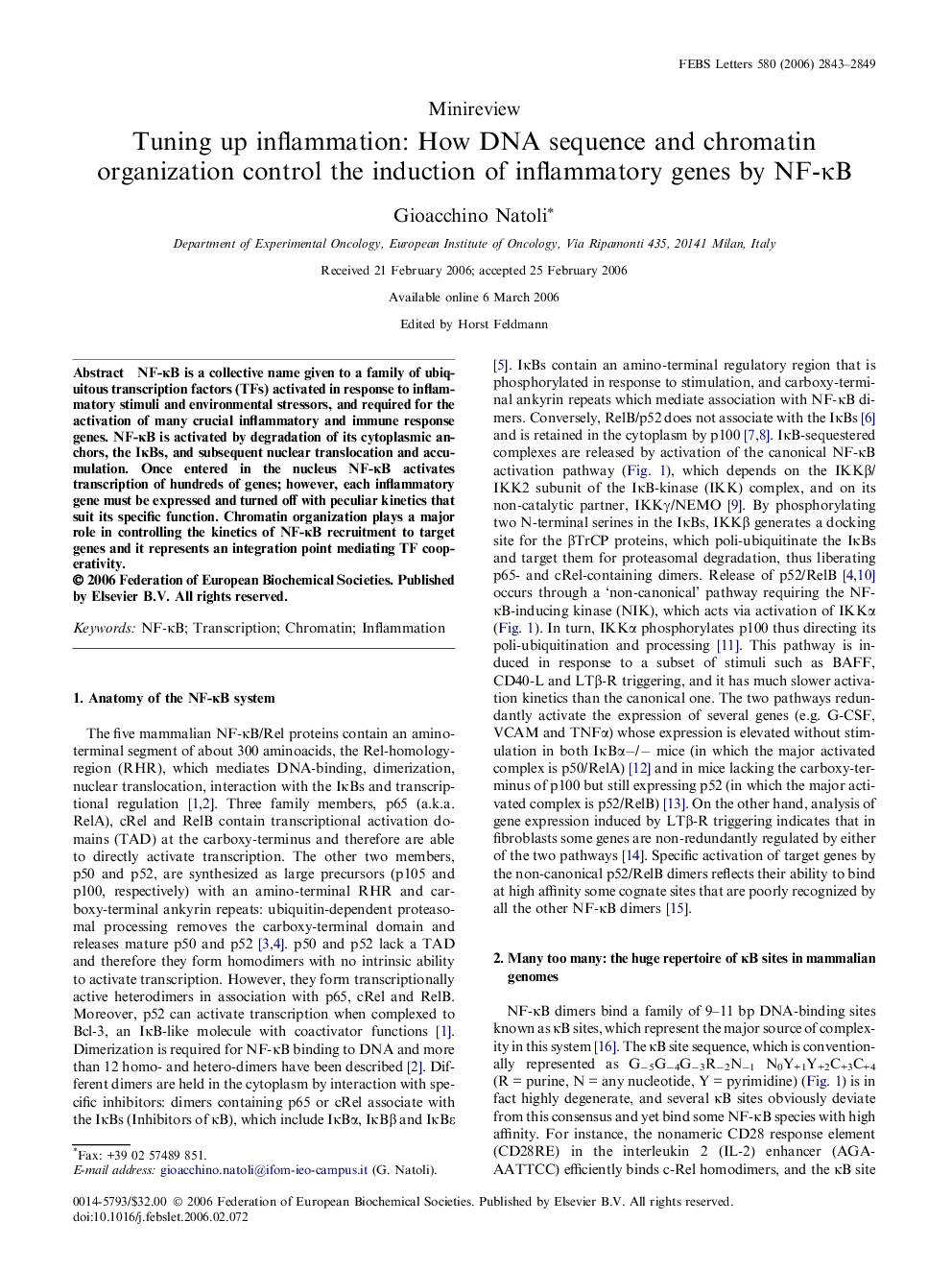| Article ID | Journal | Published Year | Pages | File Type |
|---|---|---|---|---|
| 2052742 | FEBS Letters | 2006 | 7 Pages |
NF-κB is a collective name given to a family of ubiquitous transcription factors (TFs) activated in response to inflammatory stimuli and environmental stressors, and required for the activation of many crucial inflammatory and immune response genes. NF-κB is activated by degradation of its cytoplasmic anchors, the IκBs, and subsequent nuclear translocation and accumulation. Once entered in the nucleus NF-κB activates transcription of hundreds of genes; however, each inflammatory gene must be expressed and turned off with peculiar kinetics that suit its specific function. Chromatin organization plays a major role in controlling the kinetics of NF-κB recruitment to target genes and it represents an integration point mediating TF cooperativity.
